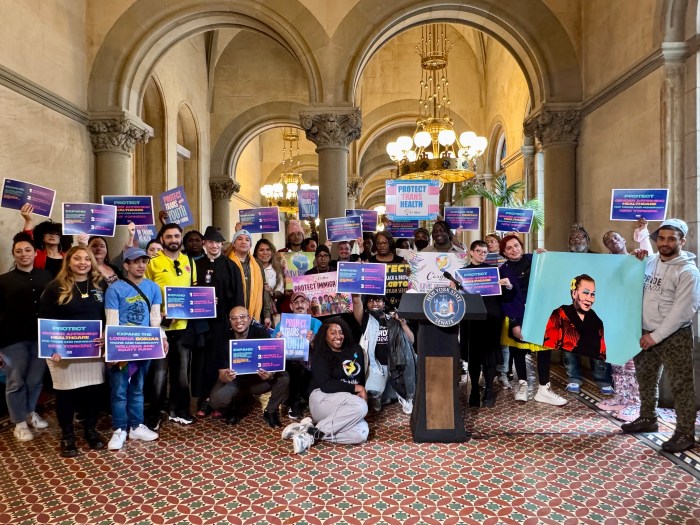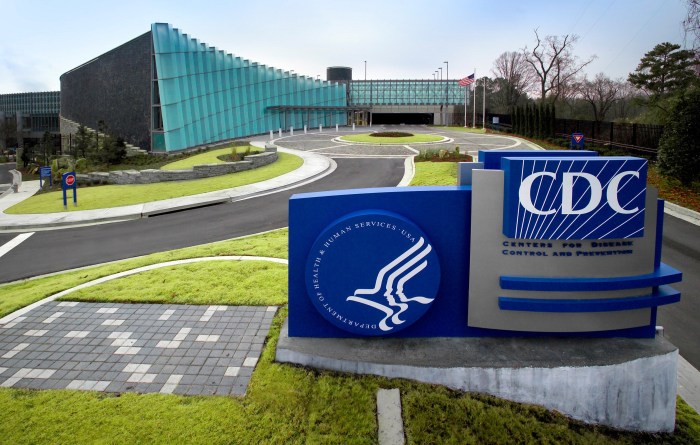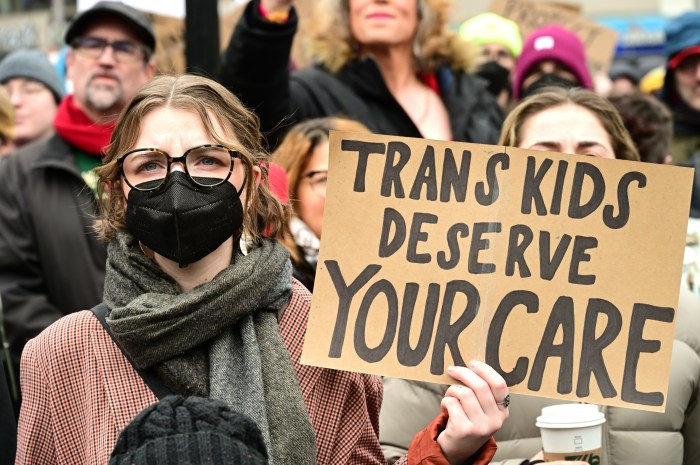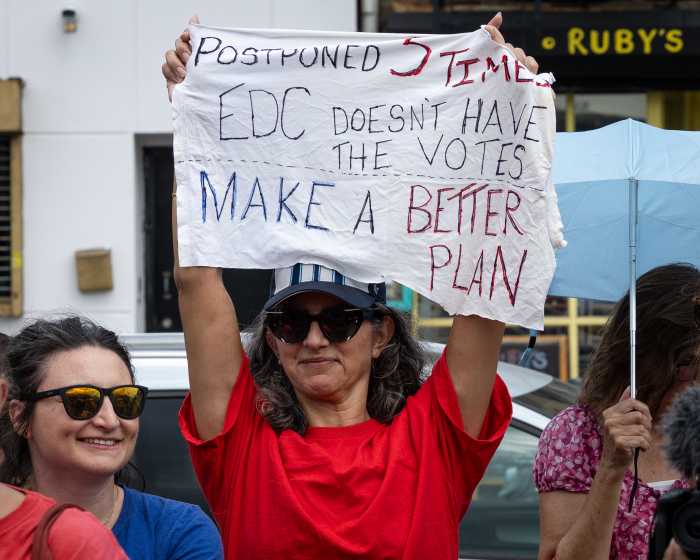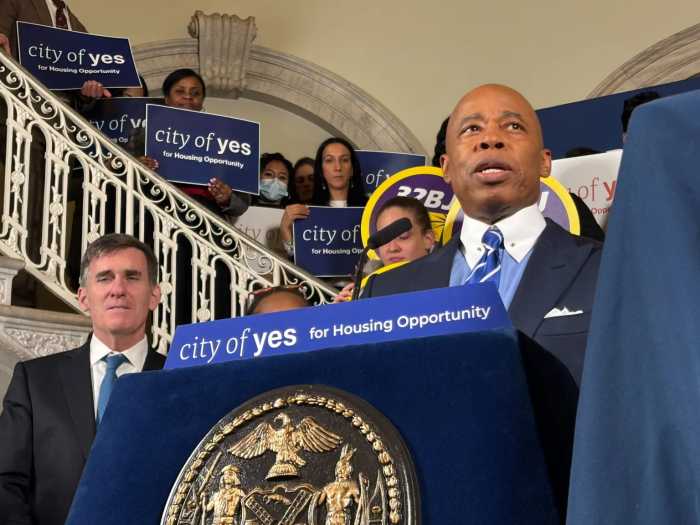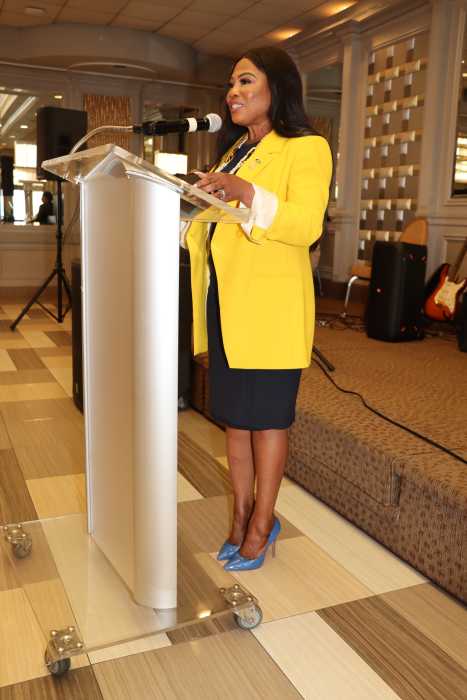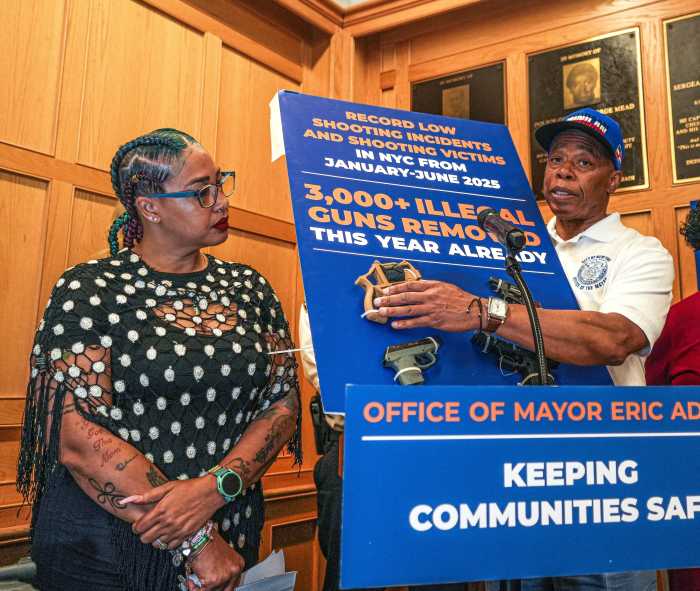Declaring that “the conversation about HIV/AIDS must be revived,” City Council Speaker Christine Quinn used the occasion of World AIDS Day on Dec. 1 to launch a new social networking campaign called “I Talk Because…,” in which New Yorkers are encouraged to post brief video messages online explaining why talking about the epidemic is important in their lives.
“The goal of this campaign is to get New Yorkers talking to each other every day about HIV and AIDS,” Quinn, the openly lesbian councilmember from Chelsea, said at a Dec. 1 City Hall press conference.
Quinn was joined by Robert Jackson, the Upper Manhattan councilmember who chairs the Education Committee; Wendy Stark, executive director of the Callen-Lorde Community Health Center, a Chelsea facility that serves the LGBT community; Tony Award-winning stage and television actor BD Wong; and model/actress Veronica Webb.
Quinn explained that between now and next Dec. 1, the campaign aims to enlist 500 video contributors and attract a quarter-million viewing hits. Fifty videos—including ones from Quinn, Wong and Webb—have already gone up, with nearly 9,000 hits as of Dec. 2.
Wong talked of remembering the early years of AIDS, which he said gave him perspective he is “enthusiastic” about sharing with younger people, particularly as a parent for the past nine years. He said he thought participating would prove “energizing” and give contributors a chance to make videos “full of the humanity that we really want to have infused within it.”
Wong also noted that the social networking effort is “viral” by definition—in “the most positive usage of that word.”
Webb also spoke from her vantage point as a parent of two young daughters, 7 and 5, and as she mentioned them, choked back tears remembering friends she has lost to AIDS.
“You talk because it’s part of your character, and it’s responsible to talk, and it’s good to talk, and it makes you free to talk,” Webb said about her participation in the program.
Quinn noted that making use of social networking tools is particularly appropriate in reaching young people whose infection rates continue to be resistant to public health messages. In response to a reporter’s question, she said that the program has not been tailored for use in the pubic schools, and acknowledged, “There is concern on a lot of different levels that overall we aren’t doing as well as we should as it relates to health curriculum on HIV/AIDS and other areas.” She noted that the Council is looking at that issue and would be announcing policy initiatives “soon.”
More information on the “I Talk Because…” campaign can be found at www.youtube.com/italkbecause, www.facebook.com/italkbecause and on Twitter at @ITalkBecause.

